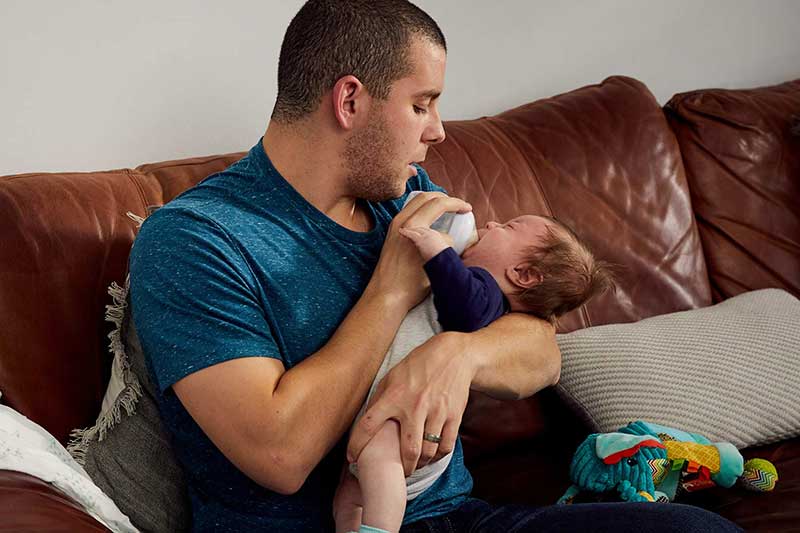A Guide to Reflux in Babies
If you have a baby, then you’re probably already well aware of the fact that all babies spit up (thank goodness for bibs!). For most babies, this is completely normal and is not a cause for alarm. But for some, it’s a little more complicated than that. Find out if your baby is just a “happy spitter” or if it could be something more.
In this article:

What is infant reflux?
When your baby is spitting up, it simply means that what’s in your baby’s stomach is coming back up through their mouth or nose. The official name is gastroesophageal reflux (GER) which is usually shortened to just reflux.
Reflux alone is a normal thing for babies, and for most it doesn’t become a bigger issue.

Normal reflux in babies
Reflux is one of the most common infant feeding problems. It usually starts around the 2 to 3 week mark, peaks around 4 to 5 months, and typically goes away by about 9 to 12 months. Reflux is more likely to happen if a baby’s belly is too full, if they're moved too quickly from laying to sitting or if they're experiencing pressure on their tummy after feeding.
If you think your baby is experiencing reflux, consult your pediatrician so they can determine the best plan of action for your baby.

4 strategies for dealing with reflux
While it would be great if there was a quick fix for reflux—especially when your little one appears to be uncomfortable—there really isn’t one. Mostly it’s a matter of time for growth and development. However, there are some specific feeding strategies that can lessen reflux.
- Feed small amounts frequently. If you only feed your baby a small amount, they're going to digest it faster and will be less likely to suffer from reflux like they would if they had too much in his small stomach. Keep in mind that your baby’s belly starts off very small.
- On day 1, your baby's stomach is about the size of a shooter marble.
- By day 3, your baby's stomach is about the size of a ping pong ball.
- By day 10, your baby's stomach is about the size of an extra-large chicken egg.
- Burp your baby at natural pauses in feeding. Do this instead of waiting until the end of the feeding.
- Stick with tummy-friendly milk. Breastfeeding for as long as possible will help keep reflux in babies at bay because breastmilk is more easily digested. If you are formula-feeding and your baby is having reflux, talk to your pediatrician about trying other formulas. It’s also important never to put solid foods or cereal in your baby’s bottle unless specifically instructed to do so by your pediatrician.
- Keep your baby upright after feeding. By feeding your baby upright and keeping them that way even after feeding, you’re helping what’s in their stomach stay there. Keep your baby in this position for about 20 to 30 minutes after feeding before laying them down.

GERD vs. regular reflux
While there are many strategies you can try to lessen reflux in babies, you may need to take a different approach if your baby is dealing with GERD, or gastroesophageal reflux disease. The symptoms are more severe and may include:
- Abdominal pain
- Frequent night waking
- Crying or arching back during feeding
- Refusing to eat
- Having blood or greenish color in spit-up
- Increased frequency or intensity of spit-up (may project)
- Swollen or distended belly
- Wheezing and/or coughing
If these symptoms sound familiar, call your pediatrician so you can both decide the best course of treatment for your baby. In some cases, medication is prescribed.

